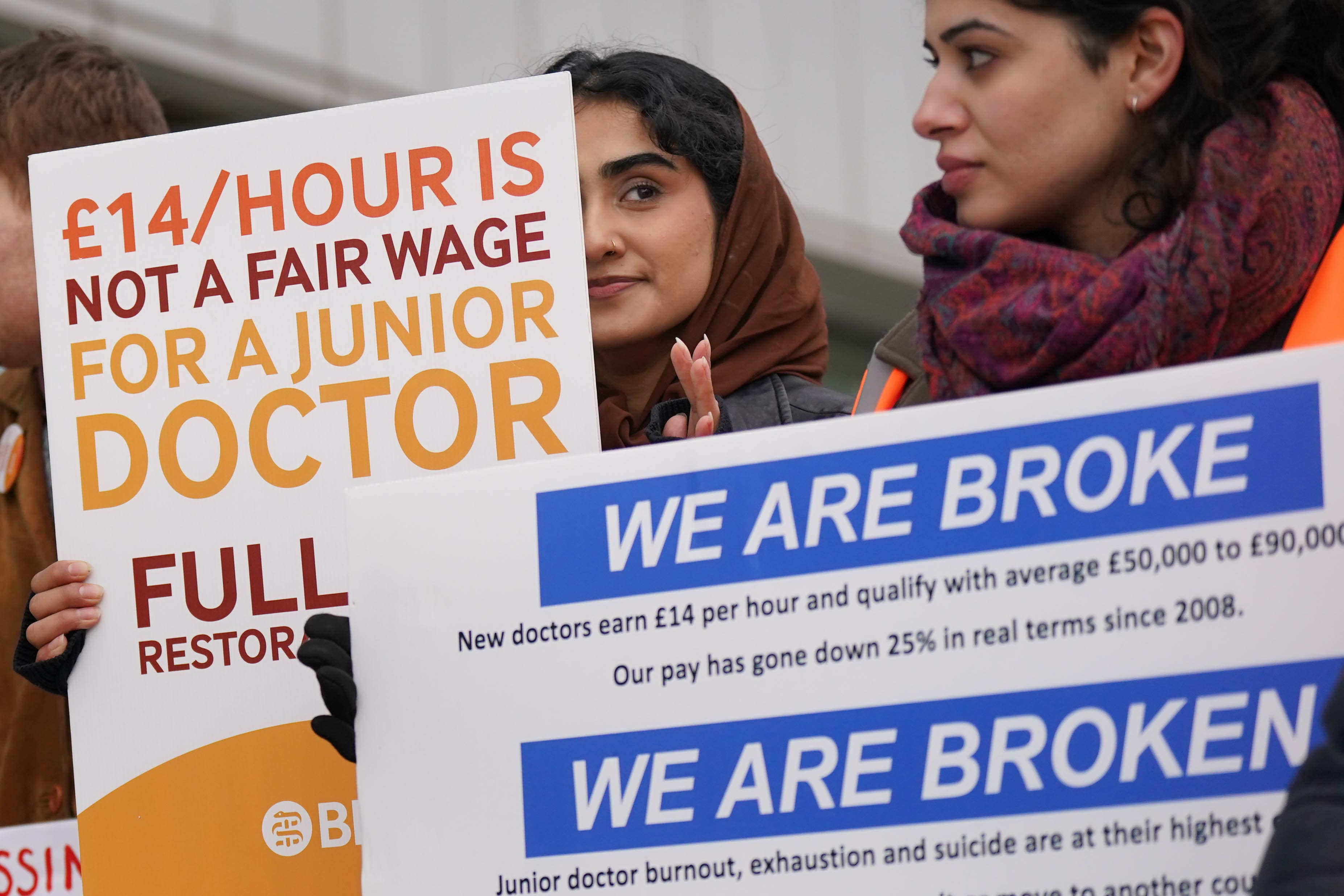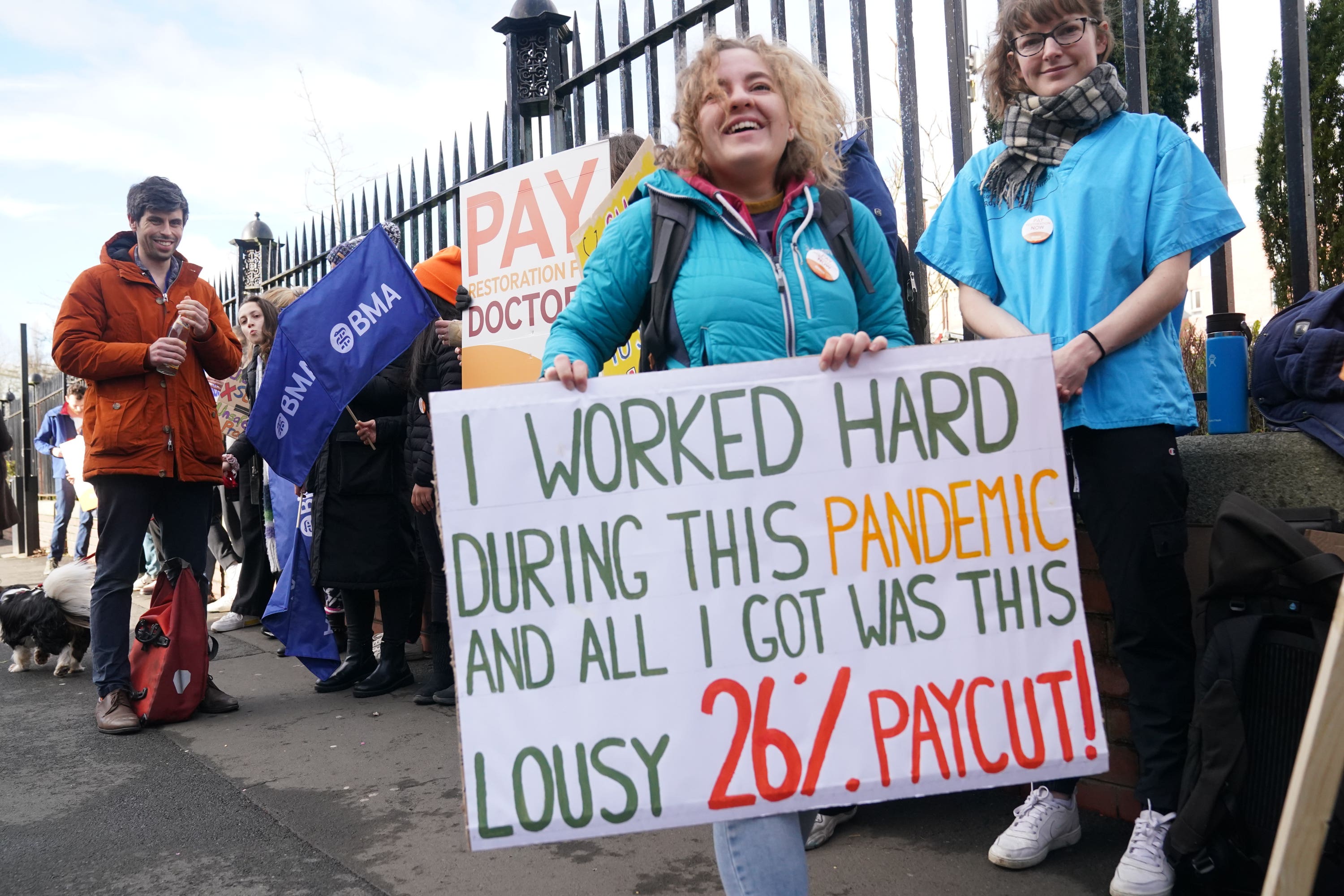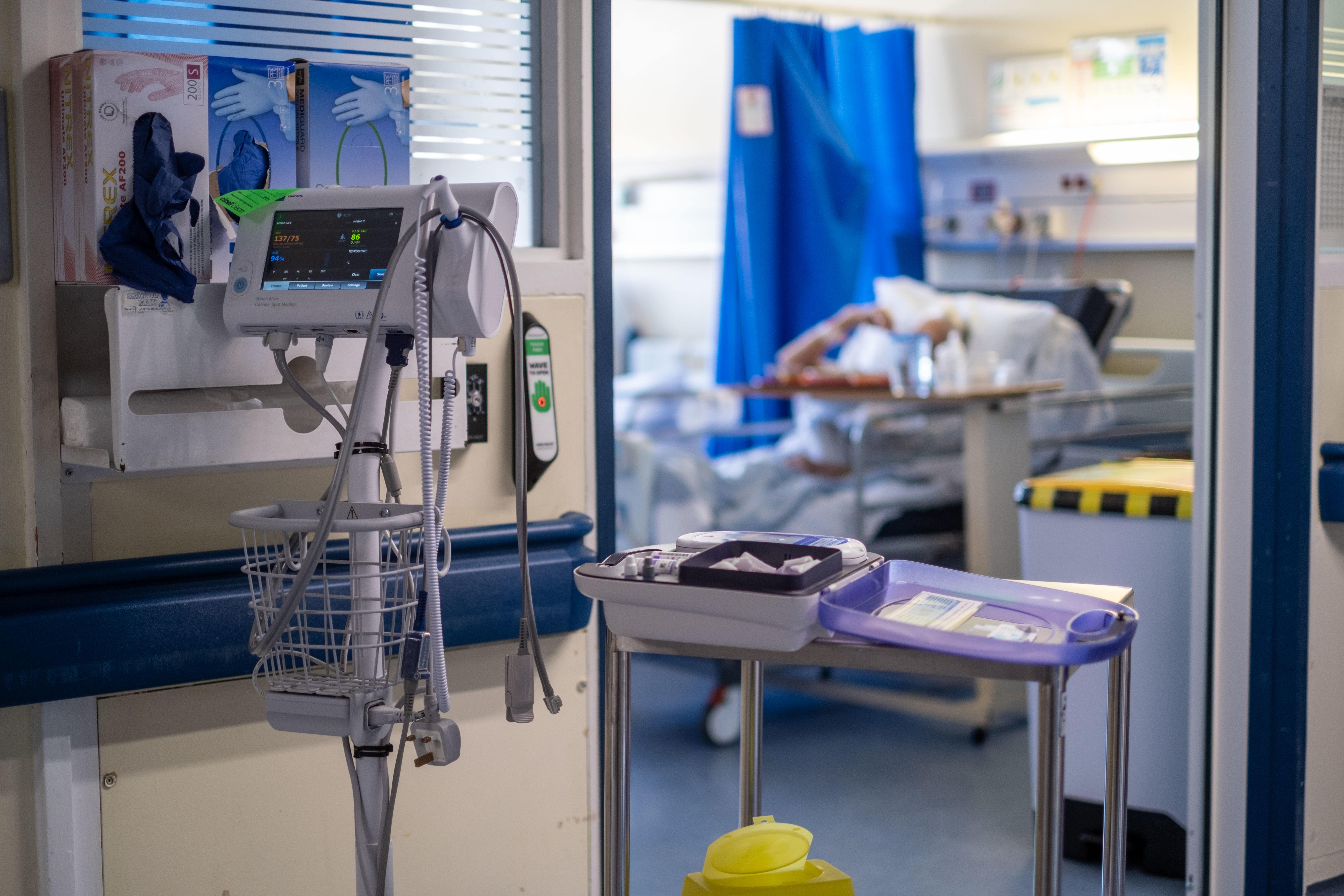When is the the junior doctors strike and what does it mean for you?
Four days of industrial action begins as worsening dispute over pay threatens huge disruption to NHS
Junior doctors have begun a four-day strike across England amid a worsening dispute over pay, threatening huge disruption to the already ailing NHS.
The strike will see around 50,000 junior doctors take to picket lines, with Sir Stephen Powis, national medical director for NHS England, predicting it will be “the most disruptive industrial action in NHS history”.
Patients were warned on Monday to avoid “risky” behaviour and stay away from A&E if possible, while hospital bosses estimated that 350,000 routine operations were likely to be cancelled.
As doctors take to the picket lines, we take a look at what the strikes mean for you.

When do the strikes start and end?
The junior doctors taking part - who constitute around half of all NHS doctors, according to the health service - mounted picket lines outside hospitals at 7am on Tuesday, as the country returns to work following the Easter bank holiday weekend.
The industrial action is set to continue through Wednesday, Thursday and Friday, until Saturday morning.
This is the longest stoppage of the wave of unrest, which has seen nurses, ambulance crews and other health workers take action since last year.
Why are junior doctors striking?
The strikes centre around a pay row between the BMA and Government, with the union claiming junior doctors in England have seen a 26 per cent real-terms pay cut since 2008/09 because pay rises have been below inflation.
The union has asked for a full pay restoration that the Government said would amount to a 35 per cent pay rise – which ministers have said is unaffordable.
BMA officials said the pay issue is making it harder to recruit and retain junior doctors, with members previously walking out for three days in March.
After the last round of strikes by junior doctors in 2016, basic pay for the sector (depending on seniority) ranged from £29,384 to £58,398 – considerably less than those in equivalent roles are paid in Canada, to give one example.

What impact will the strikes have on your NHS care?
The 96-hour walkout will likely reverberate through the NHS for months to come.
Managers have said patient care is “on a knife edge” because of the strike, while NHS Confederation chief executive Matthew Taylor said the number of appointments cancelled, previously suggested to be 250,000, was likely to rise by another 100,000.
National medical director of NHS England Professor Sir Stephen Powis said on Sunday the strikes will put “immense pressures” on staff and services.
NHS England said staff will be asked to prioritise emergency and urgent care over some routine appointments and procedures to ensure safe care for those in life-threatening situations.
The health body said appointments and operations will only be cancelled “where unavoidable” and patients will be offered alternative dates as soon as possible.
According to leaked NHS documents, the industrial action will lead to caesarean births being cancelled, an increase in the number of mental health patients detained, and issues transferring the critically ill for urgent care.
The action over pay will compromise critical care and major trauma services, while there will even be a delay to funerals because doctors will not be available to issue death certificates.

Hospitals are expecting as few as half the number of consultants to cover junior doctor shifts as during the previous strike, because of “fatigue” among staff and planned leave over the school holidays.
Internal predictions sent to the Department of Health and Social Care (DHSC) last week also warned that low staffing levels in critical care services would affect clinical care for both adults and children, with patients not receiving medicines or assessments on time.
What advice has the NHS issued to the public?
Assuming the strikes go ahead as planned, the NHS has said that the public must still access the care they need in the usual way, but should only dial 999 or visit hospital accident and emergency departments in cases of life-threatening emergencies and should use NHS 111 online and other services for non-urgent health needs whenever possible.
Patients were warned on Monday to avoid “risky” behaviour and stay away from A&E if possible.
Join our commenting forum
Join thought-provoking conversations, follow other Independent readers and see their replies
Comments


Bookmark popover
Removed from bookmarks